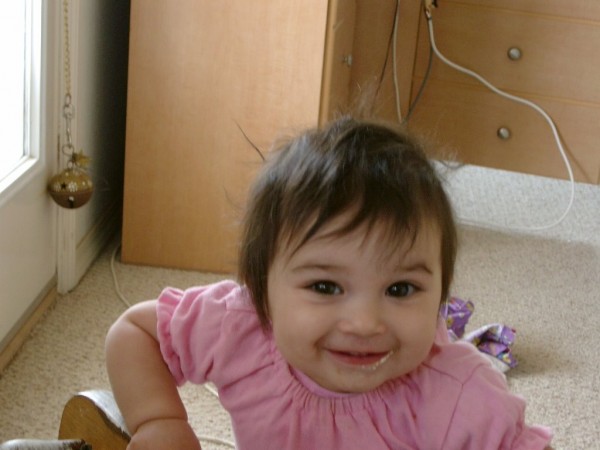RAD: The Elephant in the Adoption Room
Attachment disorder tends to be the elephant in the adoption room—we don’t want to think about anything other than that perfect infant, or that sweet, shy child who suddenly becomes ours. We have heard whispers, of course, of kids who hate the family that wants nothing more than to protect them. We have read the stories about parents surrendering the child they prayed for, about those kids who just can’t be a part of a family any longer, and we think “Once in a lifetime. Not for ME.”

Unfortunately, though, doctors are discovering that attachment issues happen more often in adoption than not. I know when my husband and I adopted, we had absolutely no idea, no cares in the world about anything other than day-to-day care of our precious snowflake. We loved her, and that would be enough to cover anything that came along—HA!
From the beginning, there were signs that something was not quite the same with our baby, things she did or didn’t do—but we couldn’t really put our finger on them, and she was just fine on the developmental charts. It was probably that we spoiled her, or that she was just exceptional, we thought. (Again—HA!)
As she became a toddler, more and more I thought that I was just probably not a great mom: She was charming and responsive with strangers and casual acquaintances, so the way she wanted nothing to do with me was probably on me. The way she wouldn’t look at us if asked, the way she refused, body and soul, to be separated for any amount of time, in her room—she was just “spirited,” I concluded, and read more parenting books. So what if she wouldn’t offer me even the slightest bit of affection? She was a Daddy’s Girl. Or the UPS Man’s Girl. Or the Cashier at Target’s girl. At least I was her mom! (HA?)

Any of you who have experience with attachment issues are l-a-u-g-h-i-n-g at me now, and I admit we were MORONS about the whole thing. Other mothers I knew told me “It seems like she is acting like my kid with RAD (Reactive Attachment Disorder).” I said “Yes, but your child is from MAJOR TRAUMA” or “Her pediatrician says she is fine!”
But . . . she wasn’t fine. She was FILLED with rage. She lied all the time about things that, literally, made no sense. (We once spent two hours and a broken door and a hole in the wall over her insistence that I had stolen her shoes. Her shoes that were, literally, ON HER FEET.) I was constantly terrified she was going to go off with a kidnapper because she wanted to be with anyone other than me. Every single day was a struggle, and nothing—not Love and Logic, not Spirited Child, not spankings, timeouts, British Nanny TV shows—NOTHING helped. And when she left home? Teachers adored her. Church leaders adored her. Parents adored her.
When I finally reached out to a therapist, he told me I was just being manipulated so she could have her way. I knew this was not the case. There’s manipulation and . . . there’s terror that your neighbors will call CPS because of three hour bloody murder screaming. Finally I looked at the information my friends sent me and I collapsed, sobbing. THIS. WAS. MY. KID.
Unfortunately, not many therapists work specifically with RAD kids, and although we knew that she had almost every one of the signs, there wasn’t a lot we could do without a therapist who both knew and believed us. We have been incredibly lucky to have found an amazing counselor, and through medication and behavioral therapy we have finally got our girl back.
And yet—I know that this is a condition she will push against for the rest of her life. She is constantly—constantly—in fight or flight mode. Her anxiety, unmedicated, is beyond overwhelming. Her brain is consistently telling her that she must cause chaos to feel safe. But we have hope. We have a diagnosis. We have medication and we have information. And she was placed with a mother who will move heaven and earth to help her baby girl—even when she is punching holes in our walls. So we will be okay.
Concerned that your child may have attachment issues? Here are some of the groups and resources I have found helpful. Want to share your struggles? Leave a comment below!






